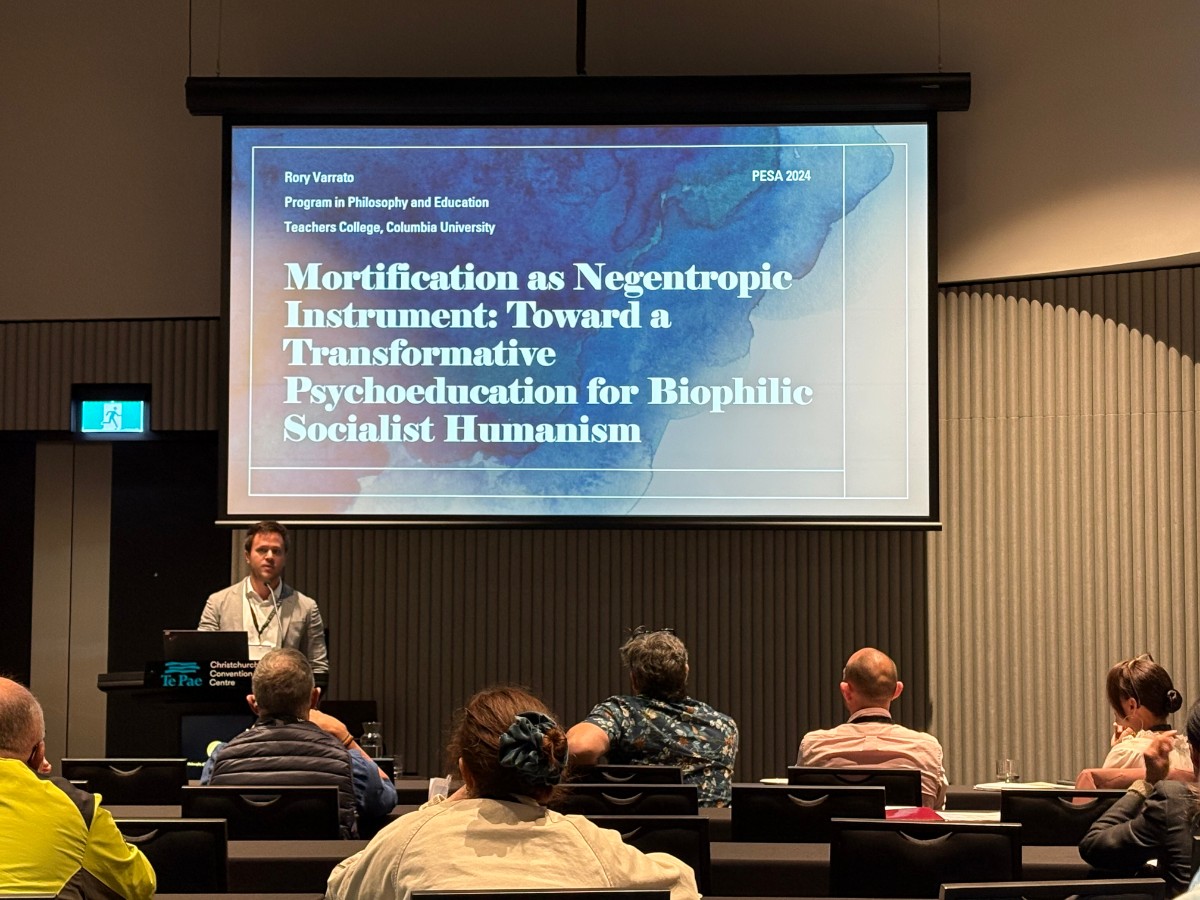My trip to the 2024 annual meeting of the Philosophy of Education Society of Australasia (PESA) in Christchurch, New Zealand, was an extremely rewarding one. The conference theme was “Shaking Up and Settling Down: Education, Agitation and Regeneration—Ka Rū, Ka Tau, Ka Ora,” which highlighted the ways that education is affected by and can affect the climate and ecological crises we face on our planet today.
My presentation, entitled “Mortification as Negentropic Instrument: Toward a Transformative Psychoeducation for Biophilic Socialist Humanism,” covered three topics: 1) my activism with Extinction Rebellion NYC, part of the global nonviolent movement for climate and ecological justice; 2) my ecological elaboration of René Arcilla’s concept of “mortification;” and 3) my suggestion that ecological mortification can spur a transformation of what Erich Fromm calls “social character.” I received excellent feedback from notable senior scholars like Ruyu Hung of the National Chiayi University in Taiwan as well as from peers like Ksenia Filatov of Boston College and Sulki Song of Teachers College, Columbia University. More broadly, I was able to meet and network with a number of academics from around the world, including countries like China, South Korea, Germany, England, Vanuatu, Australia, and New Zealand.
I also learned a tremendous amount about New Zealand history and Māori philosophy, especially from two professors based at the University of Canterbury: Te Hurinui Clarke, who led a three-hour-long cultural walk around Christchurch, and Carl Mika, who delivered an outstanding keynote address on the Māori concept of wai, which means both “who” and “water.”
For students interested in the philosophy of education, especially from an ecological perspective, I cannot recommend PESA highly enough. The community is warm and welcoming, and there are opportunities for research funding as well as for publication through the association’s well-respected journal, Educational Philosophy and Theory.
